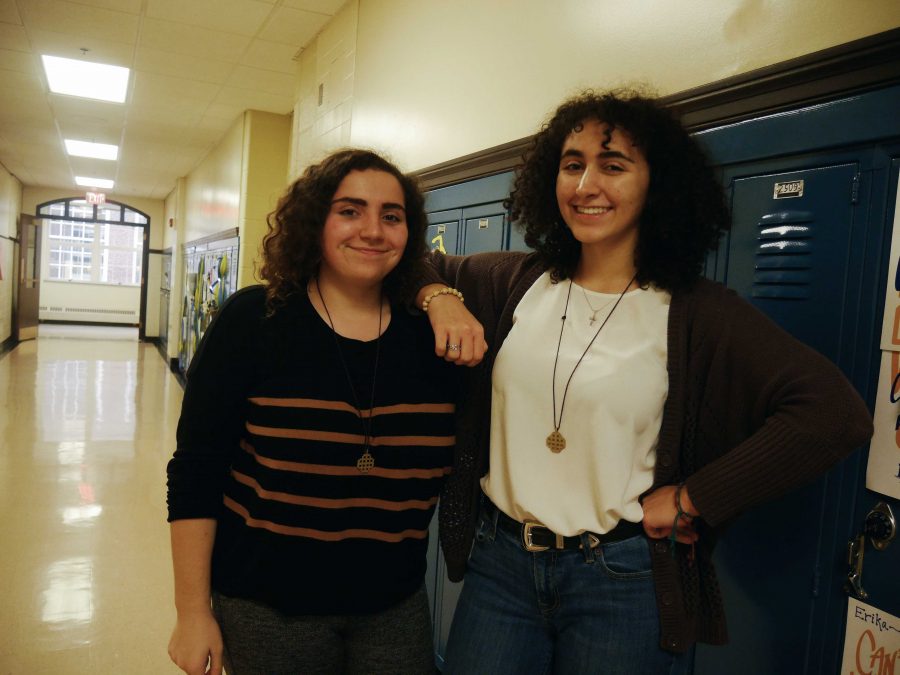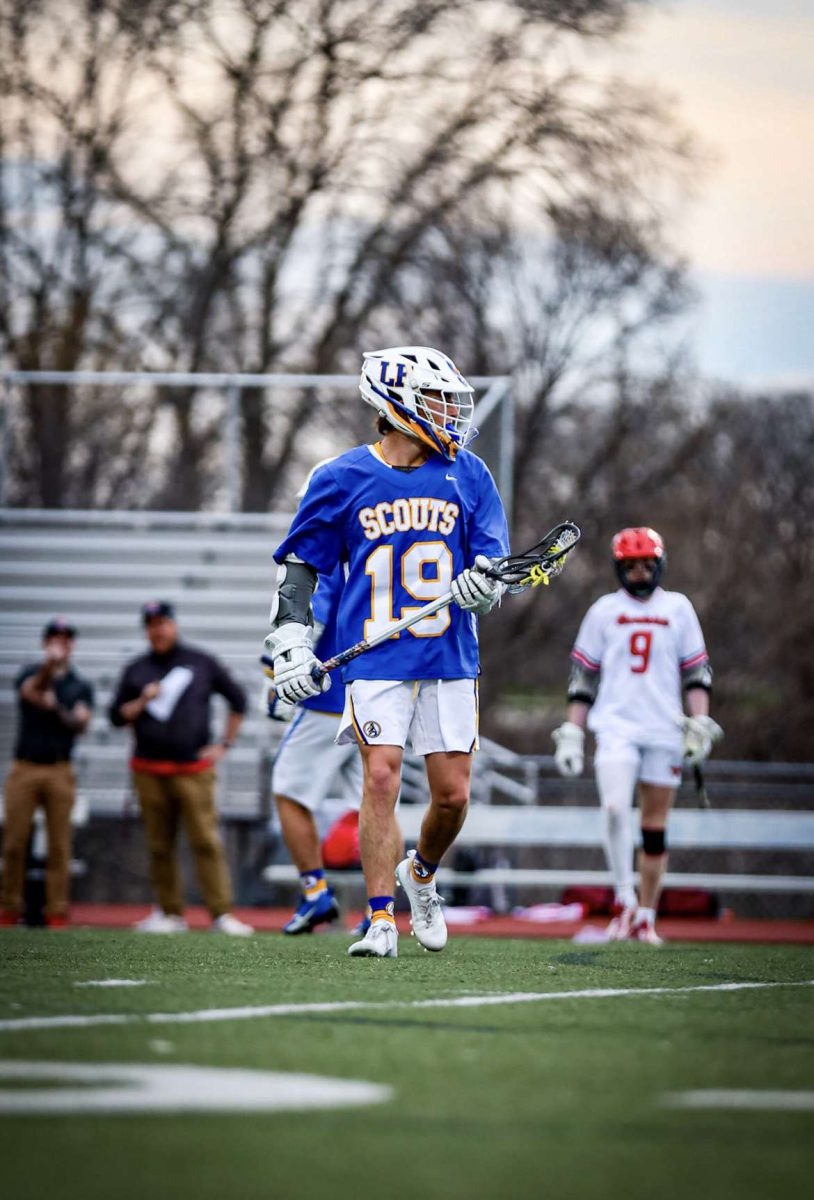Siblings– we’ve all got ‘em (sorry, only-children of Lake Forest). For some, brothers and sisters assume the role of a compassionate mentor, imparting Gandalf-like wisdom for all the obstacles that life loves to throw us. Need a ride? They’ve got your back. That one kid picked on you on the way to school? You know who to call if someone needs a good sock in the jaw. Yet, for others, the same can’t always be said. For every sweet older and younger sibling, a balance must be struck; the occasional uncalled-for closet raid (this may or may not be directed at my own siblings), the inevitable quarrels over shotgun or TV-channel choices, and the tattle-tale younger-siblings are all dues which much be paid in order to restore the neutrality of the universe, tipped slightly to the left for every positive sibling interaction.
Being the oldest of three, my younger siblings being my sister in 9th grade and brother in 7th, I can truthfully admit that the way that we interact once we enter the vulnerable sphere of the public looks immensely different than the way we interact at home. The moment we walk into a restaurant, pass through the doors of the school, or visit a friend’s home, the three of us abide to an unspoken agreement that for the time being, we will (as best as we can) repress our agitations for the sake of those around us. We surrender our right to flick each other’s ears when one of us says something stupid, we submit to the truth that it is no longer appropriate to mimic and mock one another’s voices in annoyance (no matter how much we may want to). It’s a safe bet to make that most people with siblings, no matter how well they do or don’t get along, are able to relate to the struggle of being in a room together alongside people that aren’t your siblings.
The interactions that are undergone between siblings are, to say the least, something unique. As so accurately and eloquently put by humorist Sam Levenson, siblings are, “children of the same parents, each of whom is perfectly normal until they get together.” But in the setting of a high school, where different schedules and graduating classes limit the level of interaction between brothers and sisters, that relationship is tucked away for a brief seven hours in time. To the naked eye, the guise of siblings’ distinctive bonds are reduced to exchanges of mere head bobs and barely-audible “hello”-s in passing one another in the halls, at best a short-lived dialogue surrounding rides home or dinner predictions.
However close they may be, being in the same school as siblings brings to the table a whole new, entirely foreign set of situations and code of conduct. For some, sharing a school building means entire estrangement, while for others is spells out the survival need for interdependence. To the outsider looking in, how does this in-school interaction pan out for all the brothers and sisters of Lake Forest High School?
“Well, I don’t really say ‘hi’ to my brother in the hallway. And if I do, he doesn’t really return the ‘hello’,” freshman Pauline Droege tells with a laugh. While for some siblings, crossing paths in between periods is a glorious reconciliation (though rare), it can be little more than an uncomfortable encounter for others. “Most of the time, it’d be like an awkward exchange of eye contact, but sometimes we’d say ‘hi’,” junior Skye Miller recounts on seeing her recently-graduated brother in the halls last year. “We both knew we didn’t want to see one another, but we’d acknowledge each other through our eyes. We’d just look like this [expressionless smile], but never really say ‘hi’.” For many, a sense of alienation between siblings in the school setting isn’t uncommon. “You’d go with (your siblings) to a family movie, or go get Chipotle or something, but it’s different at school. You’re like strangers,” Skye adds. “You know you live together all the time, but at school it’s just weird.”
Although the vast majority of sibling pairs and trios attending Lake Forest High School aren’t carbon copies of their brothers and sisters, most can relate to a sense of sibling recognizability among their peers. As the older sister of a freshman, I know all too well the remark, “do you have a sister? I saw a freshman that looked exactly like you.” Also able to relate to the sibling identifiability is junior Grace Bentley, saying to people mistaking her as freshman sister Abby Bentley that, “what’s really funny is, there will be people in my grade who ask, ‘do you have a sister? You guys look identical!’” Junior Grace Scheidler relates, “I hear it all the time. I get a whole lot of, ‘are you Eddie Scheidler’s sister?’” On others noticing her resemblance with sophomore brother Adam, junior Elizabeth Clayton replies, “I don’t hear it a lot, only from underclassmen, but rarely.”
Younger siblings were able to connect to having teachers recognizing them as siblings of students they’d taught in the past. Junior Eliza Hoobler noted on her older brother, having graduated from Lake Forest seven years ago, that they “have similar ways of doing things. So, some people can tell by our name and mannerisms that we’re related, even though there’s a seven year age gap. It’s nice having some of the same teachers he had. They can tell me memories about him or things they’d want me to tell him. But, it’s a very limited group of teachers.” Even if a teacher doesn’t immediately put a sibling pair together in their head, not all students are so quick in jumping to notify them. “I try not to tell teachers when they had my brother,” explained Skye Miller with a smirk. “I don’t want them to think I’m like he was. Few of my teachers actually know they had my brother, if they did. But, sometimes they’ve noticed. I’ve told a couple of them.” Junior Ellie Smith’s recently-graduated brother had even said to her, “don’t tell teachers you’re my sister. I want you to make better decisions than I did.”
For those that chose to keep their sibling ties unknown while in the classroom, reasons range from fears of being held to certain academic standards to simply wanting to avoid carrying expectations as a result of siblings’ reputations. Grace Scheidler observed that, “most teachers who have older siblings tend to single (younger siblings) out– at least, in the beginning, ‘cause well, they think they know them.” Feeling burdened with precedents set by older siblings isn’t a feeling all relate to, however. Ellie Thomas noted on her older sister Kaila, a 2016 graduate, “I don’t think that it was ever a bad thing that teachers thought I should be like Kaila, because she was always good at everything, and I think that’s where a lot of my pressure to do well comes from. It was always me putting those expectations on myself, not teachers or parents or anyone else.” For Eliza Hoobler, trying to build her own identity separate from her brother’s was a habit of hers she’d noticed early on: “To not be compared to him, I’ve subconsciously picked other things. Part of me was like, ‘Oh, he was really good at Spanish, so I’ll do French.’”
“It’s really nice having older siblings in the school,” says junior Mary Kennelly, referring to her two older sisters. “You can just just ask them how to do everything, you know? Like how to get to classes. Coming in as a freshman, they’d show me where everything was. But I think my older sister only liked me because we had that age gap where I was still young enough to be cute or something.” Setting aside all the difficult and annoying sides of the situation, having a sibling in the school is undeniably advantageous. Beyond the rides before and after school, brothers and sisters serve as valuable resources, from teacher suggestions and advice, homework help, to class suggestions.
In being the oldest sibling in my family, I’ve definitely picked up on my role as the family “guinea pig”, the sibling that’s sent into the unknown as a tester. However difficult I may find diving into new situations without any notion or advice from my family members, I’m glad that my efforts will at least serve as a template or lesson for my siblings when they face the same challenges in the future. For Elizabeth Clayton, her parents have taken all that they can from her experiences: “My parents save all my notes and old homework and projects and essays. And, Adam looks at those when he’s doing the same work, so Mary will have it. And Benji will have it. And, it’s happened before where I’ve had a bad teacher, and then later on, my parents will be like, ‘Oh, if Mary gets that teacher, then she’ll just switch out of the class,’ and stuff like that.”
Eliza Hoobler was grateful for her older brother’s advice, saying that he’d told her “a lot of things he wish he wouldn’t have or had done in high school. Without knowing, I picked a lot of the same classes as him. AP Euro, AP Bio, and we have different work ethics, but similar interests, and, it’s funny because we’re polar-opposites. But, he can give me advice on how things work.” For Ellie Smith, her brother’s interests in high school shaped what she’d go on to pursue, class and elective-wise: “He did do ceramics, and I already had a love for art, but had never done ceramics, or even thought about it before he mentioned it. He did it with his friend and really liked it. Also, he told me to do creative writing and film next year.”
Getting even more specific than sharing a school building with a sibling, what is it like to share a classroom? Sometimes sharing the school itself can be enough, as Ellie Smith related to, saying, “Part of me wanted me to be at school with my big brother, but I feel like he would’ve annoyed me.” More uncommon, due to siblings being in different graduating classes, most don’t get the opportunity to sit in the same row of desks with their siblings. One of the few, Elizabeth Clayton shares her AP Music Theory class with her sophomore brother. “It’s fine,” she says. “It’s good to be able to study with him for AP Music Theory. Oh, and it’s the same as home. Everyone says I’m too mean to him, but I’m just mean to him in a sisterly way, where I yell at him for being stupid.”
The ones most likely to share a classroom while in high school are, of course, twins. For Isabella and Francesca Mancini (see cover photo), being peers had never been something they felt opposed to. “When we were in middle school we had a lot of classes together. The teachers would just hate it!” said Francesca. Isabella laughed, adding that “it was always pretty reckless.” On if it’s better or worse being a twin, Isabella replied that, “I think it’s more fun when you have a twin because you’re the same age.” Chiming in, Francesca recounted incidents when she’d have to help her sister with the car, laughing about Isabella having forgotten “to take the key out of the ignition.” Unable to relate to being to close in age with a sibling, I wondered if the two found it more difficult to be occupying the same niche. Isabella responded, “I think we’re competitive in nature. There’s always gonna be a little bit of sibling rivalry, but I think it’s more playful, too. You kind of realize you can’t really take out that person because you have everything together.”
For better or for worse, having siblings in the high school or being the younger sibling of a graduate shapes who we are, molding our identities in one way or another. Siblings closer in age may find it difficult to make themselves independent of or distinguished from each other, being too closely grouped in age for comfort, whereas siblings separated by larger age gaps tend to feel a more advisory, mentor-type relationship– sibling relationships vary, and are unique to each family. Though whether we like it or not, no matter how close or far removed we are from them, our siblings are an integral aspect in determining who we are or aren’t. Ultimately, we aren’t always going to get along with our siblings– it’s just inevitable. And when we do? Great. But more importantly, how we chose to learn from our relationships with our brothers and sisters, whether that be at home or at school, is what will make our high school experience so valuable.







